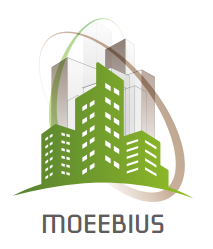
The 3rd Gerenral Assembly of MOEEBIUS project is in session in Mafra in Portugal. All the partners on the project are taking part in the meetings – Tecnalia Research & Innovation (Spain), Honeywell, SPOL. S.R.O (Czech Republic), Hypertech Energy Labs (Greece), CORK Institute of Technology (Ireland), Solintel M&P SL (Spain), Tyndall National Institute (Ireland), Almende B.V. (The Netherlands), Belit d.o.o. Beograd (Serbia), KiWi Power LTD (UK), Instituto de Soldadura e Qualidade (Portugal), Grindrop Ltd (UK), Beogradske elektrane (Serbia), Municipio de Mafra (Portugal), ASM – Market Research and Analysis Centre Ltd. (Poland) and TH Nürnberg (Germany).
This event will allow for project progress overview, update on the status of work packages, and also for business innovation meetings, technical meetings (Architecture and Data Model, Sensors and middleware, Dynamic Assessment Environment) and meeting of the Steering Committee.
During 3rd General Assembly visit to the pilot locations in Mafra will be organised, more specifically to Mafra City Hall building, School buildings complex and Kindergarten building. The visit will allow understanding of the needs of the pilot, as well as the role of modules and technical details for modelling and data acquisition.
Horizon 2020 project – MOEEBIUS (Modelling Optimization of Energy Efficiency in Buildings for Urban Sustainability) is an innovative project funded under HORIZON2020 programme of European Union under topic of development of new tools and methodologies to reduce the gap between predicted and actual energy performances at the level of buildings and blocks of buildings. Project introduces a Holistic Energy Performance Optimization Framework that enhances current (passive and active building elements) modelling approaches and delivers innovative simulation tools. These tools deeply grasp and describe real-life building operation complexities in accurate simulation predictions that significantly reduce the “performance gap”. Also, aforementioned tools enhance multi-fold, continuous optimization of building energy performance as a means to further mitigate and reduce the identified “performance gap” in real-time or through retrofitting.
